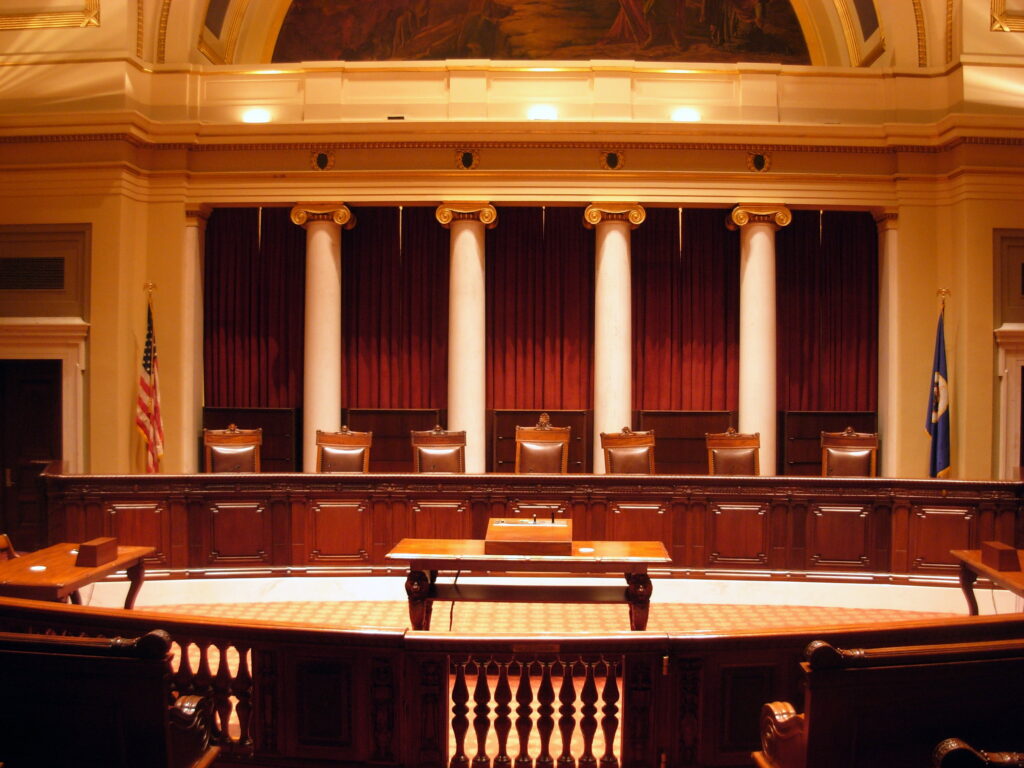Law Restoring Voting Rights to 55,000 Minnesotans With Felony Convictions Upheld by State Supreme Court

The Minnesota Supreme Court unanimously upheld a 2023 state law that restores voting rights to 55,000 Minnesotans on parole, probation or community release due to a felony conviction.
Minnesota Gov. Tim Walz, whom Vice President Kamala Harris announced yesterday as her running mate, signed the legislation last March.
In today’s ruling, the state’s highest court rejected a bid from a right-wing organization known as the Minnesota Voters Alliance to invalidate the historic rights restoration legislation for allegedly violating the state constitution.
The justices specifically concluded that the Minnesota Voters Alliance, which sued alongside Minnesota residents, lacked standing to challenge to the law, but did not address the merits of the organization’s arguments.
Under the re-enfranchisement statute enacted by the state’s Democratic-controlled Legislature last summer, voting rights were restored to Minnesotans with felony convictions immediately after release from incarceration.
Prior to the law’s enactment, those with felony convictions were permitted to regain their voting rights only after the completion of their entire sentences, which often include years- or decades-long periods of probation. This felony disenfranchisement scheme disproportionately impacted people of color by denying voting rights to nearly 4.5% of Black adults and more than 8% of Native American adults living in Minnesota.
According to the Minnesota Voters Alliance’s lawsuit, individuals on supervised release, probation or work release because of a felony conviction have “not been restored to all civil rights” and are therefore ineligible to regain voting rights until they are fully discharged from their sentences. The group also claimed the law unlawfully authorizes the use of taxpayer funds to educate and notify people about the new voting rights restoration scheme.
A Minnesota trial court held last year that the organization lacked standing and rebuffed as “fundamentally flawed” the main premise of its legal challenge — that individuals must regain “all civil rights” as a prerequisite to having their voting rights restored.
Minnesota officials — including Secretary of State Steve Simon (D) — referred to the lawsuit as an attempt to “disenfranchise more than 55,000 Minnesotans” in a brief defending the law before the state Supreme Court.
In a previous decision predating the passage of the 2023 law, the Minnesota Supreme Court upheld the state’s more restrictive scheme that required individuals to complete their full sentences before having their rights restored. However, in that opinion, the six-justice majority noted that the Minnesota Legislature has “broad, general discretion to choose a mechanism for restoring the entitlement and permission to vote to persons convicted of a felony.”
Democracy Docket is tracking a total of seven lawsuits across six states concerning the issues of felony disenfranchisement and voting rights restoration. The Sentencing Project estimates that nearly 4.4 million people are barred from participating in the electoral process due to laws that disenfranchise individuals with felony convictions.